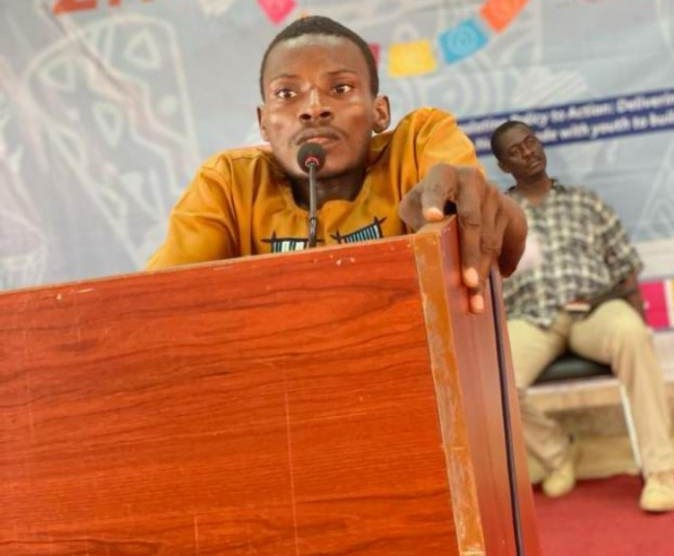PHOTO: The Author
By Perkins Boye
In 2018, Liberia witnessed a historic transition with the election of ex-soccer Legend George Weah as its President, marking the end of a 6-year reign. At the time, the then incumbent President Ellen Johnson Sirleaf, could not stand in the 2017 race because doing so would have been a constitutional violation.
Political observers believe that the playing filed is likely to be level once it excludes an incumbent or sitting president.
True to this phenomenon, the political landscape in Liberia shifted, with Weah emerging as the presumptive winner, fueled by hopes that his leadership would bring lasting peace and prosperity to a nation that had experienced various governance experiments.
Before the 2018 transition, Liberia’s history had been marked by alternating civilian, interim, and military administrations. However, with the election of Weah, there was a sense of stability and optimism among the population. In the second round of the 2017 election, Weah secured an overwhelming mandate, winning 14 out of 15 counties, promising to end corruption, abuse of public office, lawlessness, extreme poverty, and mismanagement that had plagued the governance system.
However, as the years unfolded, disillusionment set in. Weah, once hailed as a symbol of change, faced criticism for not effectively utilizing the mandate bestowed upon him. Young people, who played a significant role in his election, found themselves neglected, leading to an increase in illicit drug use among the youth, often referred to as ‘Zogoes.’ The government’s failure to address this issue highlighted a disconnect between promises made during the campaign and the harsh realities faced by the Liberian youth.
Weah’s pledge to fight corruption also came under scrutiny. Despite promising to end corruption in public service during his inauguration, allegations of self-centeredness arose as he and his close associates were implicated in the construction of private mansions and questionable budget allocations. Within four years of his leadership, key public officials faced sanctions from the U.S. government for “significant corruption” and abuse of public office.
Economic challenges further deepened, with minimal private sector investment, excessive government spending, and a national budget heavily skewed towards recurring expenditure rather than infrastructure development. Despite international reports indicating economic growth, the benefits were not felt by the majority of the population, pushing Liberia to the brink of national collapse.
The once-beloved Weah, who embodied “Change for Hope,” now faces the wrath of the Liberian people for failing to deliver on promises of transformative change under his Pro-Poor Agenda. The public perceives a stark contrast between the promised transformation and the current reality, leading to a sense of being hoodwinked among Liberians.
The governance situation worsened with the President’s indecisiveness on close confidants, breaches of conflict of interest principles, and misplaced spending priorities. Independent constitutional bodies and integrity institutions faced subjugation to the whims of the President and his cabinet.
As Liberia anticipates a new chapter, the expectations for progress and change are high. There’re Key indicators that will possibly greet the Liberians’ concerns and expectation with outmost certainty and renewal of hope.
The first confidence a New Government such as the Boakai-Koung Government can relege is the caliber of people placed in appointed positions. Their work history, credentials, and public sector performance onver the years should be checked, the officials of government must have proven record of integrity, adherance to the rule of law, sound judgement and the respect in the public opinion.
Another very important aspect that will inspire hope among Liberians are well plan and articulated new public policies that will strengthen governance and the rule of law. These policies should seek to address existing challenges in the socio-economic welbeing of the Liberian people. areas of concern include the demonstration of unwavering political will, policies fostering a conducive environment for local businesses, investments in education and healthcare, prioritization of infrastructure projects, a focus on agriculture for food security, improvements in the Water, Sanitation, and Hygiene (WASH) sector, investment in the energy sector, promotion of tourism, and upholding the rule of law through transparent and accountable governance.
As the nation stands at the cusp of a new era, it is imperative for the incoming government to learn from past mistakes, address the grievances of the people, and chart a course towards progress and prosperity. The call for change resonates loudly among Liberians, and their expectations will play a pivotal role in shaping the trajectory of the nation’s future.

